Apartment prices in Seoul and the Seoul metropolitan area have stopped rising...28th interest rate decision
■ Host: Anchor Chung Chae-woon and Anchor Kim Jung-jin
■ Starring: Lee In-cheol, Director of the Institute for Good Economics
* The text below may differ from the actual broadcast content, so please check the broadcast for more accurate information. Please specify [YTN Newswide] when quoting.
[Anchor]
Apartment prices in Seoul and the metropolitan area have stopped rising for the first time in half a year and turned flat. Analysts say that the decrease in buying is due to the impact of loan regulations. Also, on the 28th, the Bank of Korea will decide on the last base rate of this year. Attention is focusing on whether interest rates will be cut or frozen. Lee In-cheol, director of the Good Economic Research Institute, is on the phone to learn more. Hello, director.
[Lee In-cheol]
Hello,
[Anchor]
It is said that it has been six months since apartment prices in Seoul and the metropolitan area have stopped rising. Seoul is also said to have a record 90,000 apartment sales, so how is the real estate market these days?
[Lee In-cheol]
Apartment prices nationwide have turned downward for the first time in half a year due to high-intensity loan regulations. According to the Korea Real Estate Agency's weekly apartment trends across the country in the third week of November, apartment sales prices across the country fell 0.01 percent compared to a week ago. This is the first time in six months that apartment prices nationwide have fallen since the second week of May. Apartment prices in Seoul recorded a 0.6% increase, the same as last week, but it is correct that they are clearly decreasing based on the trend line.
In addition, Gyeonggi-do was flat, and Incheon fell 0.04%. In other words, the entire metropolitan area has begun to take a breather, so only apartment sales in the transaction cliff are accumulating. As of the 21st, there were 89,470 apartment sales registered in Seoul, close to 90,000. Compared to 78,000 cases in August before the loan regulation, the number of apartment sales has increased by more than 10,000 in nearly three months. Consumers are waiting and seeing as the purchase threshold is raised due to the impact of loan regulations. In particular, apartment transactions have recently declined sharply as housing prices in Seoul have risen rapidly and fatigue has been added. However, from the landlord's point of view, the house price has risen after a short adjustment, so it is not lowering the price right away. However, given that the government's total loan regulation is so strong that it is difficult to buy a house by taking out a loan now, the market is expected to continue to be cautious in trading until the end of the year.
[Anchor]
In the midst of this, the Bank of Korea's Monetary Policy Committee will decide the base rate on the 28th. It will be the last decision on the benchmark interest rate this year, so how do you forecast it?
[Lee In-cheol]
is correct. The outlook for a rate freeze prevails at the last Monetary Policy Committee meeting to be held this year on November 28. The BOK's policy objectives are twofold. price stability and financial stability Prices have stabilized. Consumer price growth has been in the 1% range for the second month in a row, below the BOK's 2% management target. The problem is financial stability. Soaring exchange rates and record-high household debt are the biggest stumbling blocks in the BOK's rate cut. First of all, the won-dollar exchange rate is moving above the psychological Maginot line of 1,400 won. The high exchange rate stimulates import prices and affects consumer prices. Loans are also expensive. As of the third quarter of
, household loans are the largest in more than three years.
In particular, in recent years, there has been a so-called balloon effect in which loans are concentrated in the second financial sector, where regulations are somewhat lax. Household loans from the second financial sector, which decreased by 300 billion won in September, increased by 2.7 trillion won last month, the largest increase in three years. Therefore, if the exchange rate stabilizes and the increase in household loans does not die down, it is not easy for the BOK, which has to achieve financial stability, to cut interest rates. If former President Trump takes office, the strong dollar policy could be further strengthened next year. This is likely to make it more difficult for the Bank of Korea to cut interest rates. However, the expectation is that the dollar will turn weak if the U.S. lowers its key interest rate additionally at the last U.S. FOMC in December this year and follows the U.S. four roadmaps to cut its key interest rate next year. In that case, the Bank of Korea also remains open to further rate cuts, but for now, it is quite likely to be a hopeful adviser.
[Anchor]
Let's also look at the impact of the second Trump administration. He announced the abolition of subsidies for electric vehicles. In the midst of this, Hyundai Motor has unveiled a new electric car in the United States. Can Hyundai Jump Over Trump's Reef With New EVs?
[Lee In-cheol]
The transition team of former President-elect Trump is moving. The IRA is going to abolish the Inflation Reduction Act, and it's going to be considered. If you make a car in the United States and meet the inflation reduction law and the IRA's country of origin requirements for batteries and key minerals, you can receive a tax credit of up to $7,500 and about 10 million won per car. Abolishing this IRA will inevitably hurt not only Hyundai Motor, which believes in tax incentives and has increased investment in the United States, but also battery manufacturers in Korea. Hyundai is targeting U.S. consumer sentiment as part of its response. Since American consumers prefer large cars and large cars, large electric sports utility vehicles are selling very well right now. It's the release of Ioniq 9 in the U.S. The Ioniq 9 will be produced locally in the United States to reduce costs and prepare for reduced subsidies. Instead, we increased the performance. That's why we intend to take a preemptive response to the reduction of subsidies.
Of course, if the subsidy is reduced as Trump intended, the Ioniq 9 will compete with performance, design, and local production. If it strengthens its competitiveness with non-price factors, it will not only strengthen its position in the U.S. market in the mid- to long-term but also have high growth potential in the global market. In fact, Hyundai's current position in the U.S. electric vehicle market is second only to Tesla. So Tesla's real battle began, and Elon Musk even joined the Trump administration. It's likely to be a very difficult four years for Hyundai, but I think it's right for Hyundai to compete with high-performance, safety, and premium vehicles in the mid to long term.
[Anchor]
Director, and there is good news that the price of cabbage, which was once close to 9,000 won, fell to 2,000 won in 10 months as autumn cabbage was shipped. Let me point this out as well. However, food and restaurant prices are still high along with the instability in the supply and demand of agricultural products due to abnormal climate. What additional measures do you think will be needed?
[Lee In-cheol]
I was particularly concerned about kimchi this year. In particular, we were concerned about the kimchi crisis during the kimchi-making season, but cabbage prices are stabilizing as autumn cabbage shipments are in full swing. According to the Korea Agro-Fisheries & Food Trade Corporation, as of the 21st, the retail price of a cabbage fell below 2,990 won and 3,000 won. It is the first time in 10 months that cabbage prices have fallen to the 2,000 won range since the middle of this year. The August and September heat waves were too long. As a result, the growth of summer cabbage growing in a fresh climate was sluggish. In some cases, the retail price of cabbage soared to 9,963 won at the end of September due to drought. However, as autumn cabbage was shipped in earnest and the government supported a maximum discount of 40% on it, the price of cabbage reached 2,000 won.
This price is 14.5% lower compared to the three-year average price since 2019, but it is still 13.7% higher compared to a year ago. Fortunately, most of the ingredients, such as garlic, red pepper powder, and salted fish, which can be called kimchi ingredients, are stable at the average level. Of course, radish prices are quite expensive. The retail price of one kimchi-making radish is 2,630 won, 86% higher than a year ago and 30% higher than the average year. Anyway, some agricultural and fishery products are stabilizing, with cabbage prices falling, the main ingredient.There remains a structural problem. Food prices and restaurant prices are actually very unstable due to the unstable supply and demand of agricultural products. It will inevitably take time at the restaurant for kimchi, which has never appeared before, to appear, but when it comes to cabbage, it is ground when it is in a good year, and when it is in a bad year, the price rises to a wave level. As it is one of the items that cannot be controlled well due to climate change, the government needs to create a stable production environment by developing items that are resistant to climate change in the mid- to long-term in order to increase contract cultivation and flexible stockpiles.
[Anchor]
This time, let's talk about companies. Lotte Group, ranked sixth in the business world, recently faced a serious liquidity crisis, and it was noisy. The group says there is no liquidity problem, but there seems to be talk of selling department store stores. What do you think about this background?
[Lee In-cheol]
That's right. Recently, through information from unknown YouTuber sources, the Lotte Group will be in a liquidity crisis early next month and will be publicized like the second Daewoo Group. Rumor has it that it will go bankrupt. It's quite leaps and bounds, and at first glance, I don't understand, but the content was quite specific. Lotte Group's profits are 39 trillion won, the fourth largest in the world. The group's short-term net income this year is only 1 trillion won, which is less capable of repaying. It contains information that more than half of the employees will be cut, mainly by distribution affiliates.
The day after the news broke, the stock market was in turmoil. The stock price of Lotte Group's major affiliates fell more than 5-10% in one day, hitting a new 52-week low during the day. Even though Lotte Group said it was groundless and that it would punish the rumors strongly in the first place, it did not prevent the stock price from falling. From an investor's point of view, would there be smoke in the chimney? In fact, the petrochemical and distribution sector, which is called Lotte Group's main business recently. It is true that the department stores, marts, and duty-free shops you mentioned are struggling considerably.
In the case of Lotte Chemical called Cash Cow, it has brought operating profit of more than KRW 1 trillion every year, but the cumulative deficit reached 660 billion until the last three quarters of this year. The chemical industry is increasingly seeing its performance deteriorate due to oversupply and low-cost Chinese products. In addition, as Lotte Engineering & Construction was in a liquidity crisis due to poor PF, Lotte Chemical has even supported its affiliates by providing payment guarantees. In terms of online business, Lotte On has been a little late in launching its business in 2020.Ma's cumulative deficit exceeded 500 billion won by the first half of this year. After all, Lotte Group has more than 71 trillion won in real estate and cash assets combined. We are trying to evolve a liquidity crisis. Of course, the fact that Lotte Group is disintegrated in the air like Daewoo Group is overly exaggerated. However, the structural problems behind the rumor, the stagnation in the main business of chemistry and distribution, and the debt management. It doesn't seem easy to fully restore investor confidence unless fundamental solutions follow.
[Anchor]
Finally, let's look at the problem of virtual assets and taxation. Recently, the ruling and opposition parties have shown subtle differences in their positions on this issue following the financial investment tax. What is the position of the ruling and opposition parties on virtual asset taxation and what do you think about its feasibility?
[Lee In-cheol]
That's right. If you earn 5 million won from coin investment starting next year, you will have to pay 550,000 won in taxes alone. If you earn 10 million won, you have to pay 1.65 million won in taxes. Under the current income tax law, 22% tax, including local taxes, will be imposed on excess income, except for 2.5 million won in basic deductions from virtual asset investment income from January 1 next year. Virtual assets were originally scheduled to be implemented in 2021, but have been suspended twice. The government and ruling party are in a position to suspend taxation for more than two years on the grounds that the taxation system is insufficient and that 8 million virtual asset investors should be protected. However, in the case of the Democratic Party of Korea, which has the initiative in legislation, it opposes the suspension of taxation due to the issue of why taxes are not collected where there is income and tax deficits. However, we will come up with a supplementary measure to raise the tax deduction limit to 50 million won instead of 2.5 million won.
They say they will implement it as scheduled. What is the core of the controversy? Since 14 million stock investors protested, they eliminated the financial investment tax, and 8 million virtual investors are against it, but they are taxed? This is a problem with taxation equity. In fact, virtual asset investors are quite vocal in opposing taxation itself. As a result, some people have no business in front of the ticket. In the end, some people think that it will be postponed or abolished. In any case, young investors interpret virtual assets as a political message. In fact, nearly 50,000 to 60,000 people signed on the National Assembly's petition bulletin board against coin taxation in a day. Now the National Assembly has to answer. It is scheduled for the end of this month whether there will be no business in front of the ticket like the abolition of the financial investment tax, or whether it will push ahead with taxation despite opposition from 8 million virtual asset investors. It is expected to be concluded in next year's tax law amendment.
[Anchor]
I see. Let's stop here. So far, we've talked with Lee In-cheol, director of the Very Good Economic Research Institute. Thank you for talking today, director.
※ 'Your report becomes news'
[Kakao Talk] YTN Search and Add Channel
[Phone] 02-398-8585
[Mail] social@ytn. co. kr
■ Starring: Lee In-cheol, Director of the Institute for Good Economics
* The text below may differ from the actual broadcast content, so please check the broadcast for more accurate information. Please specify [YTN Newswide] when quoting.
[Anchor]
Apartment prices in Seoul and the metropolitan area have stopped rising for the first time in half a year and turned flat. Analysts say that the decrease in buying is due to the impact of loan regulations. Also, on the 28th, the Bank of Korea will decide on the last base rate of this year. Attention is focusing on whether interest rates will be cut or frozen. Lee In-cheol, director of the Good Economic Research Institute, is on the phone to learn more. Hello, director.
[Lee In-cheol]
Hello,
[Anchor]
It is said that it has been six months since apartment prices in Seoul and the metropolitan area have stopped rising. Seoul is also said to have a record 90,000 apartment sales, so how is the real estate market these days?
[Lee In-cheol]
Apartment prices nationwide have turned downward for the first time in half a year due to high-intensity loan regulations. According to the Korea Real Estate Agency's weekly apartment trends across the country in the third week of November, apartment sales prices across the country fell 0.01 percent compared to a week ago. This is the first time in six months that apartment prices nationwide have fallen since the second week of May. Apartment prices in Seoul recorded a 0.6% increase, the same as last week, but it is correct that they are clearly decreasing based on the trend line.
In addition, Gyeonggi-do was flat, and Incheon fell 0.04%. In other words, the entire metropolitan area has begun to take a breather, so only apartment sales in the transaction cliff are accumulating. As of the 21st, there were 89,470 apartment sales registered in Seoul, close to 90,000. Compared to 78,000 cases in August before the loan regulation, the number of apartment sales has increased by more than 10,000 in nearly three months. Consumers are waiting and seeing as the purchase threshold is raised due to the impact of loan regulations. In particular, apartment transactions have recently declined sharply as housing prices in Seoul have risen rapidly and fatigue has been added. However, from the landlord's point of view, the house price has risen after a short adjustment, so it is not lowering the price right away. However, given that the government's total loan regulation is so strong that it is difficult to buy a house by taking out a loan now, the market is expected to continue to be cautious in trading until the end of the year.
[Anchor]
In the midst of this, the Bank of Korea's Monetary Policy Committee will decide the base rate on the 28th. It will be the last decision on the benchmark interest rate this year, so how do you forecast it?
[Lee In-cheol]
is correct. The outlook for a rate freeze prevails at the last Monetary Policy Committee meeting to be held this year on November 28. The BOK's policy objectives are twofold. price stability and financial stability Prices have stabilized. Consumer price growth has been in the 1% range for the second month in a row, below the BOK's 2% management target. The problem is financial stability. Soaring exchange rates and record-high household debt are the biggest stumbling blocks in the BOK's rate cut. First of all, the won-dollar exchange rate is moving above the psychological Maginot line of 1,400 won. The high exchange rate stimulates import prices and affects consumer prices. Loans are also expensive. As of the third quarter of
, household loans are the largest in more than three years.
In particular, in recent years, there has been a so-called balloon effect in which loans are concentrated in the second financial sector, where regulations are somewhat lax. Household loans from the second financial sector, which decreased by 300 billion won in September, increased by 2.7 trillion won last month, the largest increase in three years. Therefore, if the exchange rate stabilizes and the increase in household loans does not die down, it is not easy for the BOK, which has to achieve financial stability, to cut interest rates. If former President Trump takes office, the strong dollar policy could be further strengthened next year. This is likely to make it more difficult for the Bank of Korea to cut interest rates. However, the expectation is that the dollar will turn weak if the U.S. lowers its key interest rate additionally at the last U.S. FOMC in December this year and follows the U.S. four roadmaps to cut its key interest rate next year. In that case, the Bank of Korea also remains open to further rate cuts, but for now, it is quite likely to be a hopeful adviser.
[Anchor]
Let's also look at the impact of the second Trump administration. He announced the abolition of subsidies for electric vehicles. In the midst of this, Hyundai Motor has unveiled a new electric car in the United States. Can Hyundai Jump Over Trump's Reef With New EVs?
[Lee In-cheol]
The transition team of former President-elect Trump is moving. The IRA is going to abolish the Inflation Reduction Act, and it's going to be considered. If you make a car in the United States and meet the inflation reduction law and the IRA's country of origin requirements for batteries and key minerals, you can receive a tax credit of up to $7,500 and about 10 million won per car. Abolishing this IRA will inevitably hurt not only Hyundai Motor, which believes in tax incentives and has increased investment in the United States, but also battery manufacturers in Korea. Hyundai is targeting U.S. consumer sentiment as part of its response. Since American consumers prefer large cars and large cars, large electric sports utility vehicles are selling very well right now. It's the release of Ioniq 9 in the U.S. The Ioniq 9 will be produced locally in the United States to reduce costs and prepare for reduced subsidies. Instead, we increased the performance. That's why we intend to take a preemptive response to the reduction of subsidies.
Of course, if the subsidy is reduced as Trump intended, the Ioniq 9 will compete with performance, design, and local production. If it strengthens its competitiveness with non-price factors, it will not only strengthen its position in the U.S. market in the mid- to long-term but also have high growth potential in the global market. In fact, Hyundai's current position in the U.S. electric vehicle market is second only to Tesla. So Tesla's real battle began, and Elon Musk even joined the Trump administration. It's likely to be a very difficult four years for Hyundai, but I think it's right for Hyundai to compete with high-performance, safety, and premium vehicles in the mid to long term.
[Anchor]
Director, and there is good news that the price of cabbage, which was once close to 9,000 won, fell to 2,000 won in 10 months as autumn cabbage was shipped. Let me point this out as well. However, food and restaurant prices are still high along with the instability in the supply and demand of agricultural products due to abnormal climate. What additional measures do you think will be needed?
[Lee In-cheol]
I was particularly concerned about kimchi this year. In particular, we were concerned about the kimchi crisis during the kimchi-making season, but cabbage prices are stabilizing as autumn cabbage shipments are in full swing. According to the Korea Agro-Fisheries & Food Trade Corporation, as of the 21st, the retail price of a cabbage fell below 2,990 won and 3,000 won. It is the first time in 10 months that cabbage prices have fallen to the 2,000 won range since the middle of this year. The August and September heat waves were too long. As a result, the growth of summer cabbage growing in a fresh climate was sluggish. In some cases, the retail price of cabbage soared to 9,963 won at the end of September due to drought. However, as autumn cabbage was shipped in earnest and the government supported a maximum discount of 40% on it, the price of cabbage reached 2,000 won.
This price is 14.5% lower compared to the three-year average price since 2019, but it is still 13.7% higher compared to a year ago. Fortunately, most of the ingredients, such as garlic, red pepper powder, and salted fish, which can be called kimchi ingredients, are stable at the average level. Of course, radish prices are quite expensive. The retail price of one kimchi-making radish is 2,630 won, 86% higher than a year ago and 30% higher than the average year. Anyway, some agricultural and fishery products are stabilizing, with cabbage prices falling, the main ingredient.There remains a structural problem. Food prices and restaurant prices are actually very unstable due to the unstable supply and demand of agricultural products. It will inevitably take time at the restaurant for kimchi, which has never appeared before, to appear, but when it comes to cabbage, it is ground when it is in a good year, and when it is in a bad year, the price rises to a wave level. As it is one of the items that cannot be controlled well due to climate change, the government needs to create a stable production environment by developing items that are resistant to climate change in the mid- to long-term in order to increase contract cultivation and flexible stockpiles.
[Anchor]
This time, let's talk about companies. Lotte Group, ranked sixth in the business world, recently faced a serious liquidity crisis, and it was noisy. The group says there is no liquidity problem, but there seems to be talk of selling department store stores. What do you think about this background?
[Lee In-cheol]
That's right. Recently, through information from unknown YouTuber sources, the Lotte Group will be in a liquidity crisis early next month and will be publicized like the second Daewoo Group. Rumor has it that it will go bankrupt. It's quite leaps and bounds, and at first glance, I don't understand, but the content was quite specific. Lotte Group's profits are 39 trillion won, the fourth largest in the world. The group's short-term net income this year is only 1 trillion won, which is less capable of repaying. It contains information that more than half of the employees will be cut, mainly by distribution affiliates.
The day after the news broke, the stock market was in turmoil. The stock price of Lotte Group's major affiliates fell more than 5-10% in one day, hitting a new 52-week low during the day. Even though Lotte Group said it was groundless and that it would punish the rumors strongly in the first place, it did not prevent the stock price from falling. From an investor's point of view, would there be smoke in the chimney? In fact, the petrochemical and distribution sector, which is called Lotte Group's main business recently. It is true that the department stores, marts, and duty-free shops you mentioned are struggling considerably.
In the case of Lotte Chemical called Cash Cow, it has brought operating profit of more than KRW 1 trillion every year, but the cumulative deficit reached 660 billion until the last three quarters of this year. The chemical industry is increasingly seeing its performance deteriorate due to oversupply and low-cost Chinese products. In addition, as Lotte Engineering & Construction was in a liquidity crisis due to poor PF, Lotte Chemical has even supported its affiliates by providing payment guarantees. In terms of online business, Lotte On has been a little late in launching its business in 2020.Ma's cumulative deficit exceeded 500 billion won by the first half of this year. After all, Lotte Group has more than 71 trillion won in real estate and cash assets combined. We are trying to evolve a liquidity crisis. Of course, the fact that Lotte Group is disintegrated in the air like Daewoo Group is overly exaggerated. However, the structural problems behind the rumor, the stagnation in the main business of chemistry and distribution, and the debt management. It doesn't seem easy to fully restore investor confidence unless fundamental solutions follow.
[Anchor]
Finally, let's look at the problem of virtual assets and taxation. Recently, the ruling and opposition parties have shown subtle differences in their positions on this issue following the financial investment tax. What is the position of the ruling and opposition parties on virtual asset taxation and what do you think about its feasibility?
[Lee In-cheol]
That's right. If you earn 5 million won from coin investment starting next year, you will have to pay 550,000 won in taxes alone. If you earn 10 million won, you have to pay 1.65 million won in taxes. Under the current income tax law, 22% tax, including local taxes, will be imposed on excess income, except for 2.5 million won in basic deductions from virtual asset investment income from January 1 next year. Virtual assets were originally scheduled to be implemented in 2021, but have been suspended twice. The government and ruling party are in a position to suspend taxation for more than two years on the grounds that the taxation system is insufficient and that 8 million virtual asset investors should be protected. However, in the case of the Democratic Party of Korea, which has the initiative in legislation, it opposes the suspension of taxation due to the issue of why taxes are not collected where there is income and tax deficits. However, we will come up with a supplementary measure to raise the tax deduction limit to 50 million won instead of 2.5 million won.
They say they will implement it as scheduled. What is the core of the controversy? Since 14 million stock investors protested, they eliminated the financial investment tax, and 8 million virtual investors are against it, but they are taxed? This is a problem with taxation equity. In fact, virtual asset investors are quite vocal in opposing taxation itself. As a result, some people have no business in front of the ticket. In the end, some people think that it will be postponed or abolished. In any case, young investors interpret virtual assets as a political message. In fact, nearly 50,000 to 60,000 people signed on the National Assembly's petition bulletin board against coin taxation in a day. Now the National Assembly has to answer. It is scheduled for the end of this month whether there will be no business in front of the ticket like the abolition of the financial investment tax, or whether it will push ahead with taxation despite opposition from 8 million virtual asset investors. It is expected to be concluded in next year's tax law amendment.
[Anchor]
I see. Let's stop here. So far, we've talked with Lee In-cheol, director of the Very Good Economic Research Institute. Thank you for talking today, director.
※ 'Your report becomes news'
[Kakao Talk] YTN Search and Add Channel
[Phone] 02-398-8585
[Mail] social@ytn. co. kr
[Copyright holder (c) YTN Unauthorized reproduction, redistribution and use of AI data prohibited]
Editor's Recomended News
The Lastest News
-
재생
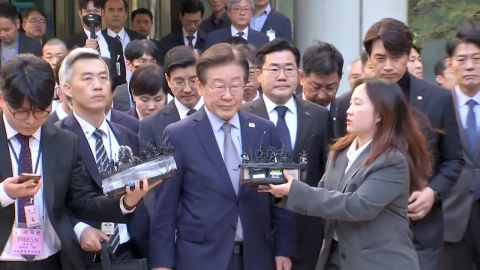 Lee Jae-myung's perjury teacher will be sentenced to the first trial tomorrow...Prosecutors sentenced to three years in prison
Lee Jae-myung's perjury teacher will be sentenced to the first trial tomorrow...Prosecutors sentenced to three years in prison -
재생
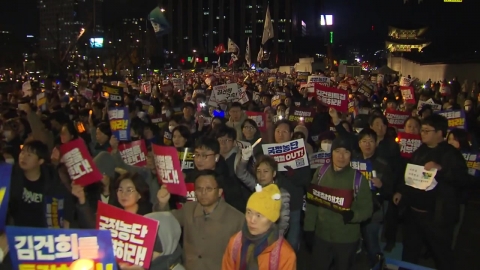 Minjoo and Lee Jae-myung's sentence before 'Hanl Dae-oh'...People's Power "The Judgment to the Judiciary"
Minjoo and Lee Jae-myung's sentence before 'Hanl Dae-oh'...People's Power "The Judgment to the Judiciary" -
Actor Ha Jiwon's drawing is sold out...Visitors flock to "Incheon Art Show."
-
재생
 "Half" Sado Mine Memorial Ceremony will be held soon...Japan "regretful" not to attend Korea
"Half" Sado Mine Memorial Ceremony will be held soon...Japan "regretful" not to attend Korea
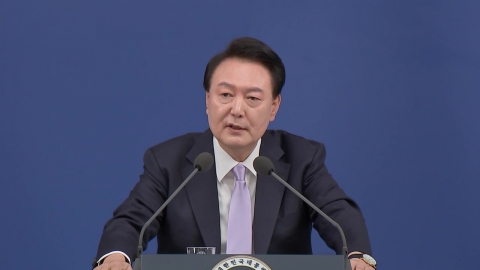

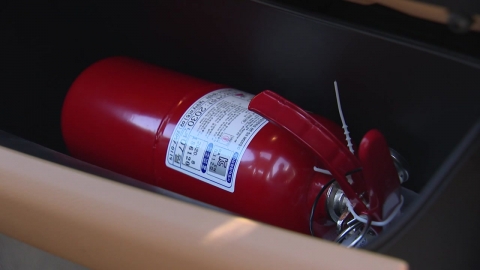
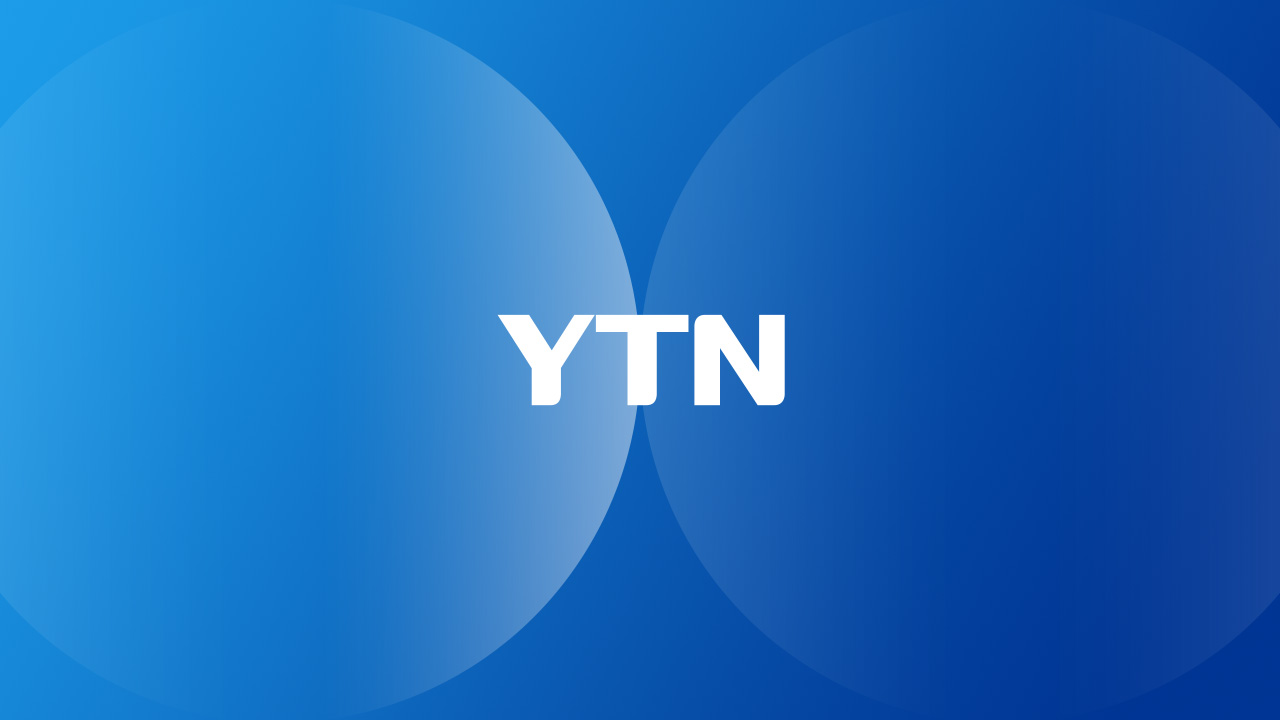
![[Y ranking] Fashion best Hani vs. Worst Refined Rice](https://image.ytn.co.kr/general/jpg/2024/1124/202411240801017328_h.jpg)
![[Yetterview]](https://image.ytn.co.kr/general/jpg/2024/1123/202411230900011387_h.jpg)
![[YTERVIEW]](https://image.ytn.co.kr/general/jpg/2024/1123/202411230800271881_h.jpg)


